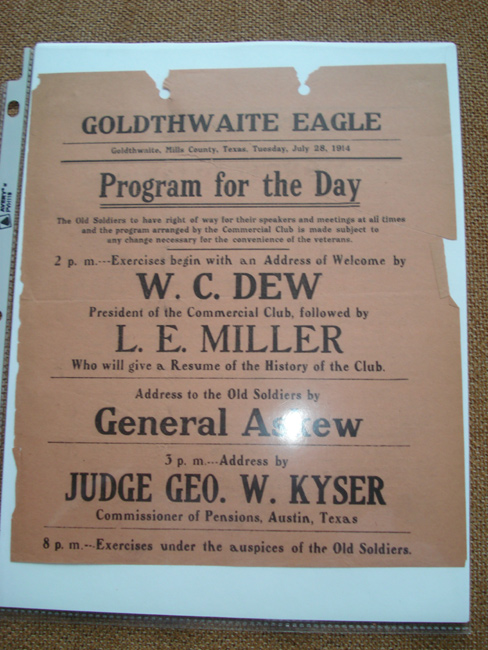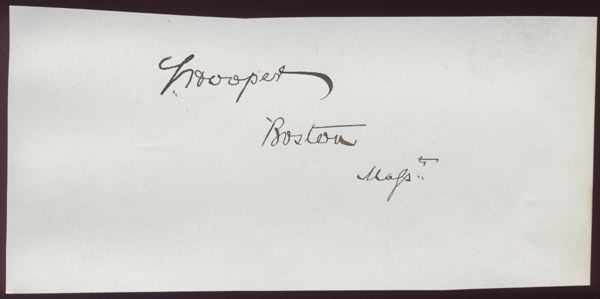Reported to have benn clipped from an 1867 Senate Chambers Autograph Book.
Samuel Hooper
HOOPER, Samuel, merchant, born in Marblehead, Massachusetts, 3 February, 1808; died in Washington, D. C., 13 February, 1875. After receiving a common school education he entered at an early age the counting-house of his father, who was engaged in European and West Indian trade. As agent of this enterprise the son visited Russia, Spain, and the West Indies. About 1832 he became junior partner in the mercantile house of Bryant, Sturgis, and Co., in Boston, where he remained for ten years, and then was a member of the firm of William Appleton and Co., who were engaged in the China trade. He was much interested in the iron business and its relation to questions of political economy, and possessed shares in the mines and furnaces near Port Henry, Lake Champlain, and in the Bay State rolling mills, South Boston. In 1851 he was elected to the Massachusetts house of representatives, where he served three years, declining a re-election, and in 1857 became state senator, but refused a renomination on account of his business enterprises. In 1860 he was elected to congress, as a Republican, to fill the vacancy caused by the resignation of William Appleton, and was re-elected at each successive biennial election until his death. He served on the committees on ways and means, on banking and currency, and on the war debts of the loyal states. The success of the national loan of April, 1861, was greatly due to his efforts. In 1869 Chief-Justice Chase wrote a letter attributing the success of the bill that provided for the national banking system to the "good judgment, persevering exertions, and disinterested patriotism of Mr. Hooper." In 1866 he was a delegate to the Philadelphia loyalists' convention. He presented $50,000 to Harvard, in 1866, to found a school of mining and practical geology in close connection with the Lawrence scientific school, and in that year received the degree of M. A. from the university. He wrote two pamphlets on currency, which became well known for their broad and comprehensive treatment of this subject. His house in Washington, which was noted for its hospitality, was the headquarters of General George B. McClellan in 1861-'2.


